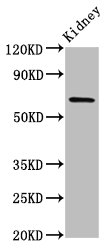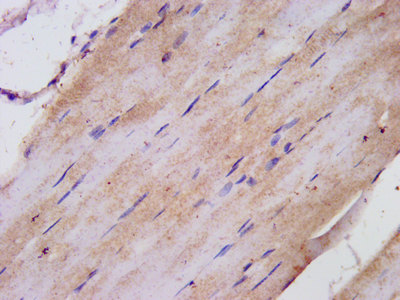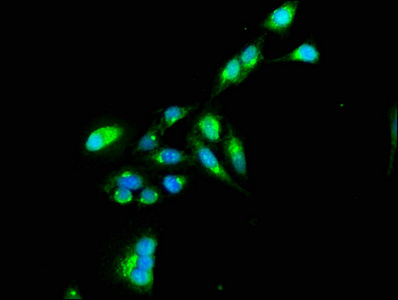Full Product Name
Rabbit anti-Homo sapiens (Human) TNIP1 Polyclonal antibody
Alternative Names
ABIN 1 antibody; HIV-1 Nef-interacting protein antibody; hVAN antibody; KIAA0113 antibody; Naf1 antibody; Nef-associated factor 1 antibody; Nip40-1 antibody; TNFAIP3 interacting protein 1 antibody; TNFAIP3-interacting protein 1 antibody; TNIP-1 antibody; Tnip1 antibody; TNIP1_HUMAN antibody; VAN antibody; Virion-associated nuclear shuttling protein antibody
Species Reactivity
Human, Rat
Immunogen
Recombinant Human TNFAIP3-interacting protein 1 protein (526-636AA)
Immunogen Species
Homo sapiens (Human)
Conjugate
Non-conjugated
The TNIP1 Antibody (Product code: CSB-PA619959LA01HU) is Non-conjugated. For TNIP1 Antibody with conjugates, please check the following table.
Available Conjugates
| Conjugate |
Product Code |
Product Name |
Application |
| HRP |
CSB-PA619959LB01HU |
TNIP1 Antibody, HRP conjugated |
ELISA |
| FITC |
CSB-PA619959LC01HU |
TNIP1 Antibody, FITC conjugated |
|
| Biotin |
CSB-PA619959LD01HU |
TNIP1 Antibody, Biotin conjugated |
ELISA |
Purification Method
>95%, Protein G purified
Concentration
It differs from different batches. Please contact us to confirm it.
Buffer
Preservative: 0.03% Proclin 300
Constituents: 50% Glycerol, 0.01M PBS, pH 7.4
Tested Applications
ELISA, WB, IHC, IF
Recommended Dilution
| Application |
Recommended Dilution |
| WB |
1:500-1:5000 |
| IHC |
1:200-1:500 |
| IF |
1:50-1:200 |
Storage
Upon receipt, store at -20°C or -80°C. Avoid repeated freeze.
Lead Time
Basically, we can dispatch the products out in 1-3 working days after receiving your orders. Delivery time maybe differs from different purchasing way or location, please kindly consult your local distributors for specific delivery time.
Usage
For Research Use Only. Not for use in diagnostic or therapeutic procedures.









